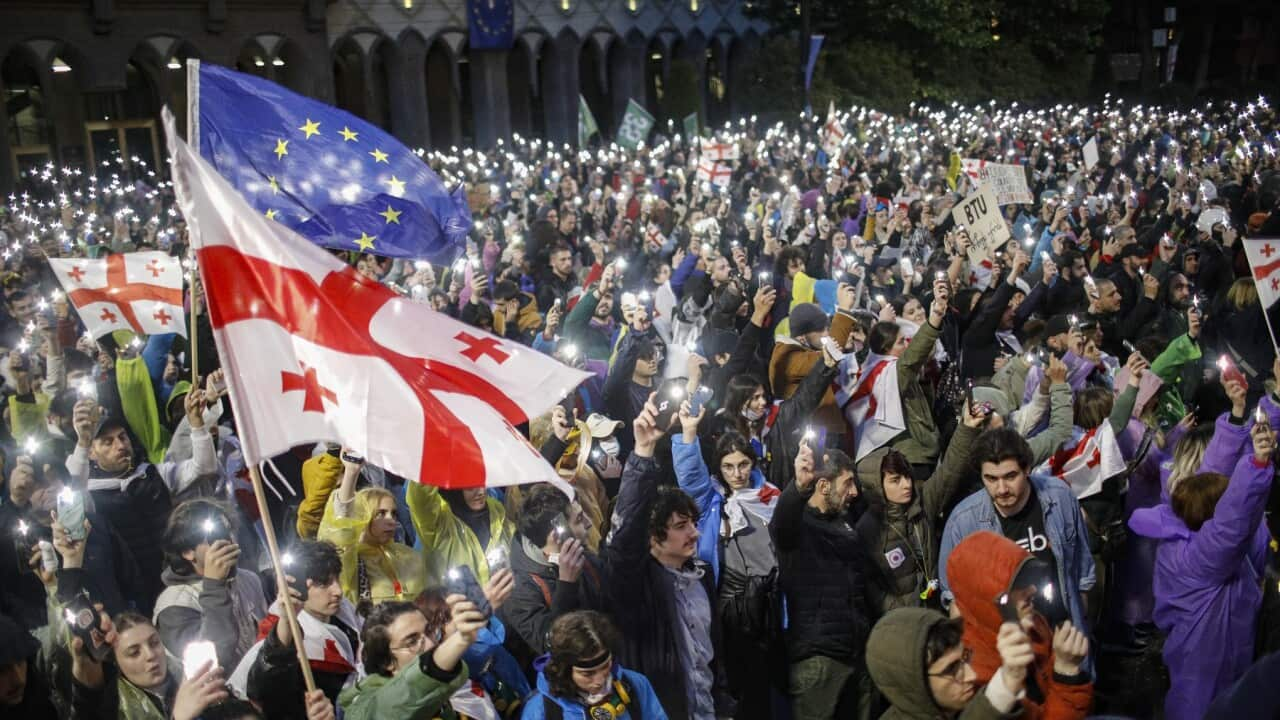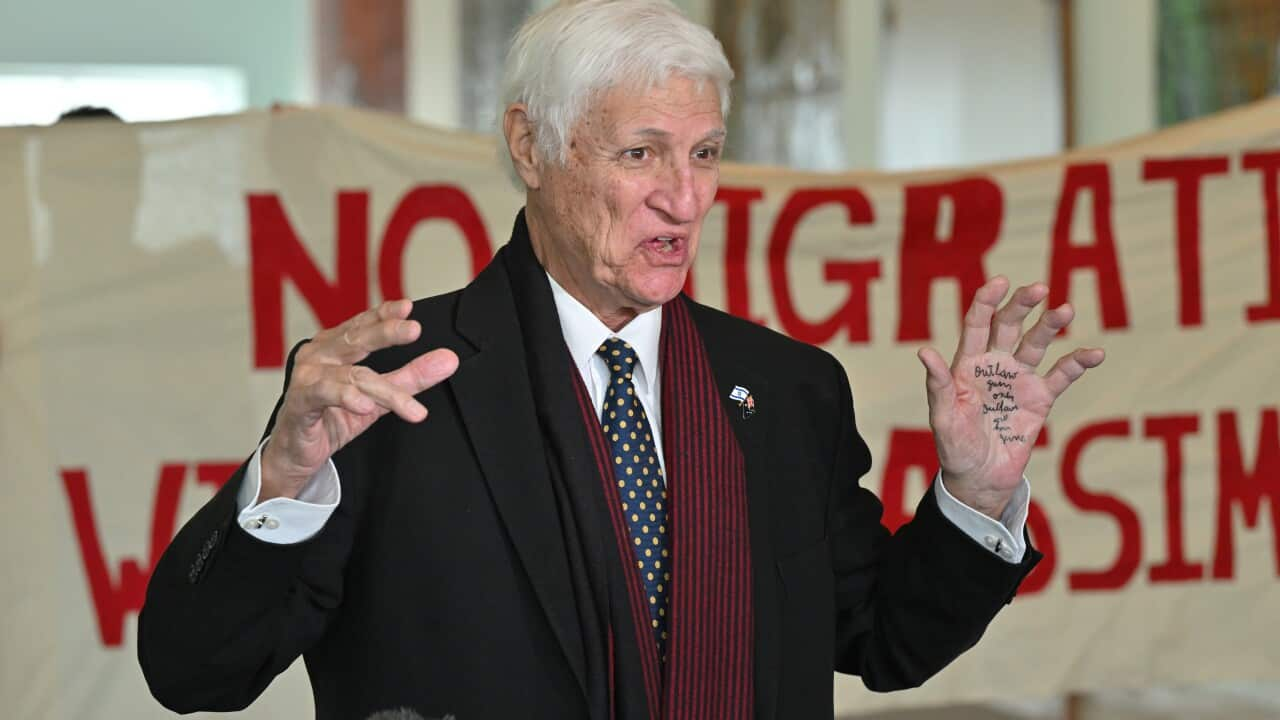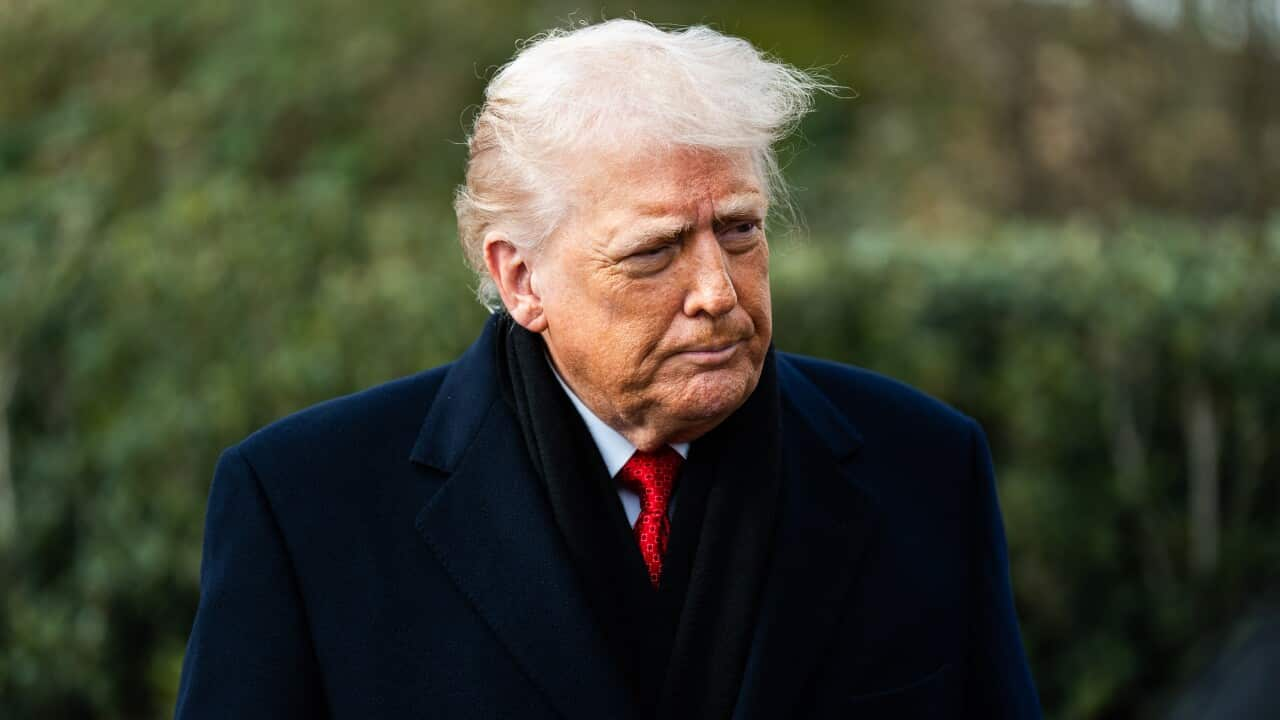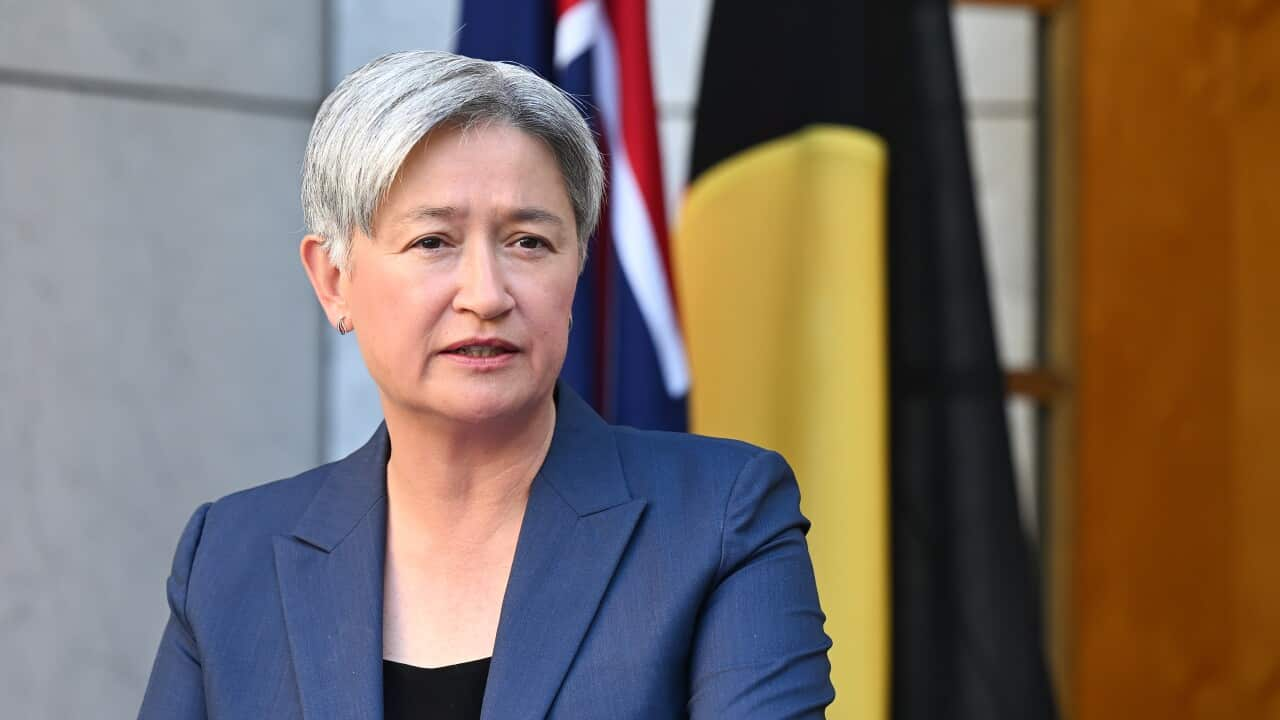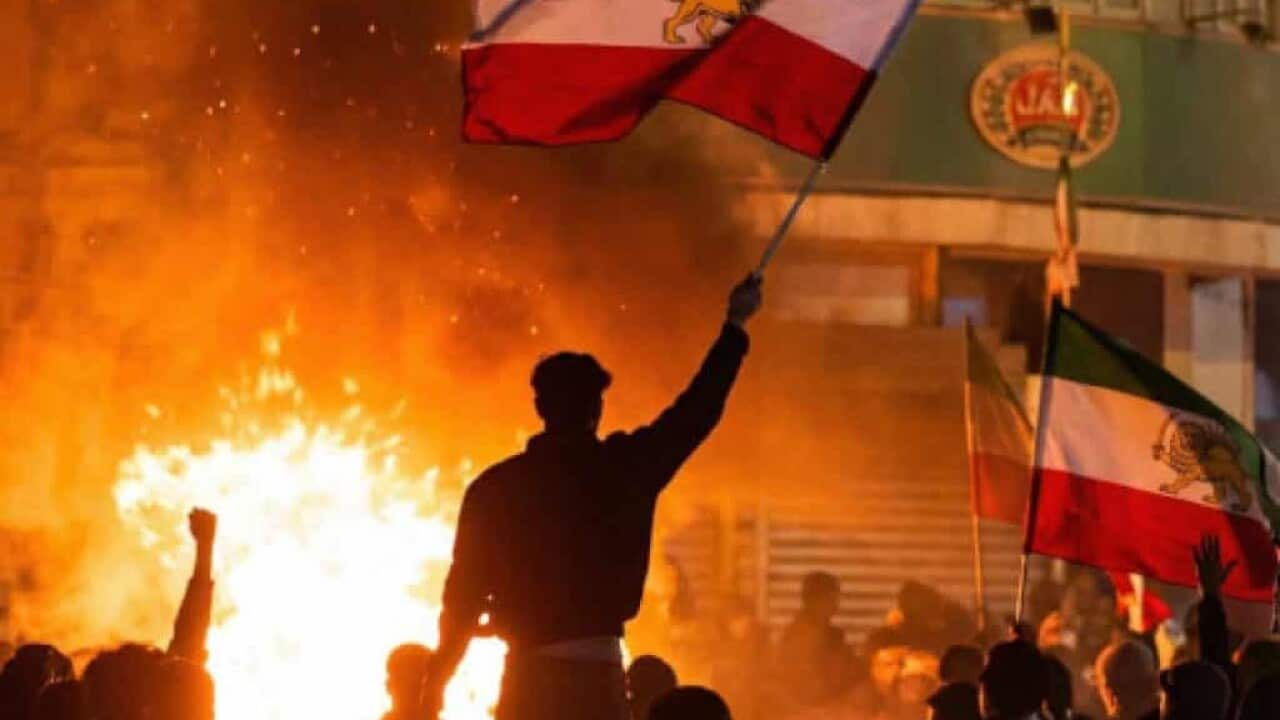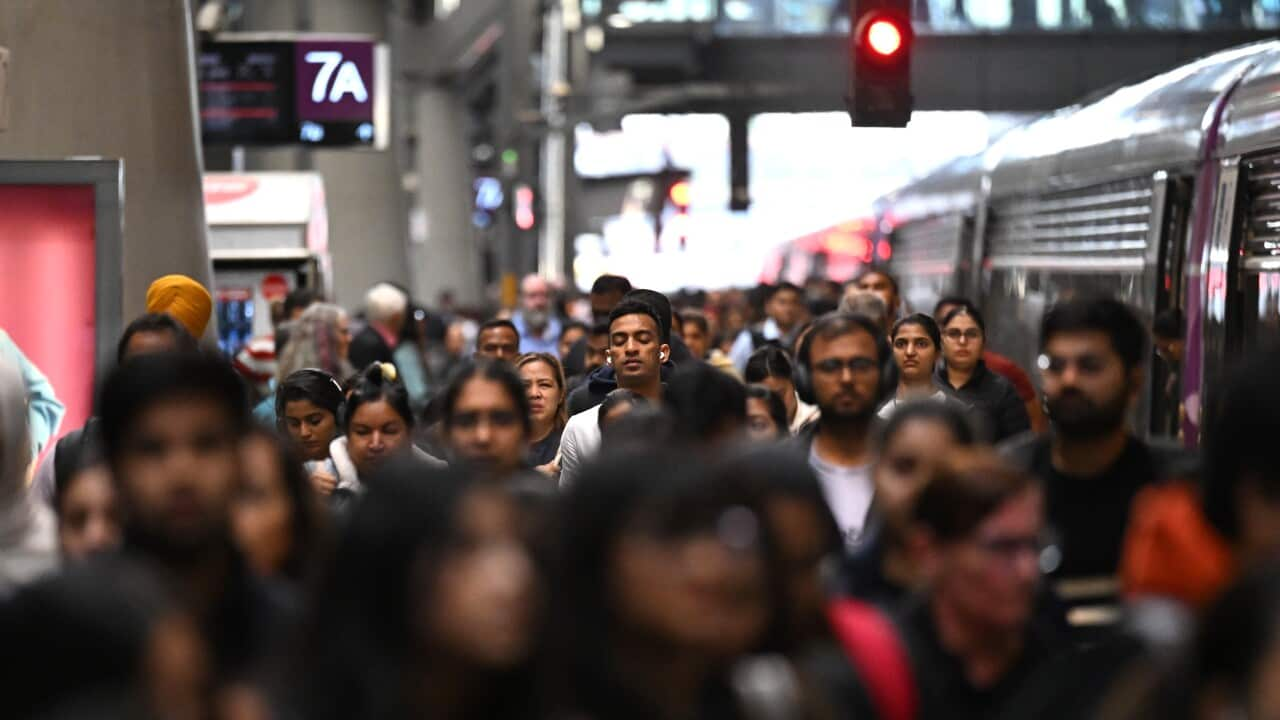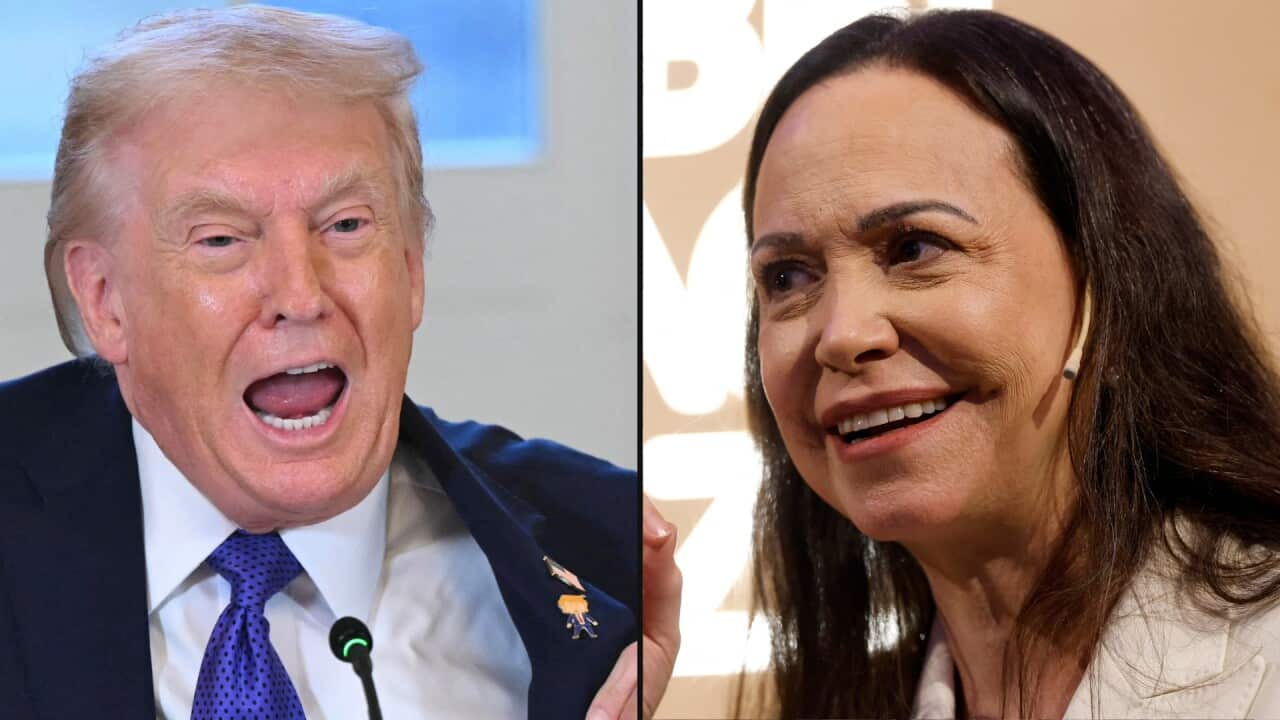Listen to Australian and world news and follow trending topics with SBS News Podcasts.
TRANSCRIPT
Hundreds of protesters blocked the main highway in Tbilisi, Georgia, after politicians approved a “foreign influence” bill that sparked weeks of mass protests.
Critics are calling it a Russian-style threat to free speech.
The bill requires media and non-governmental organisations and other nonprofit groups to register as entities pursuing the interests of a foreign power, if they receive more than 20 per cent of their funding from abroad.
Among those taking part in the protests is former President of the Georgian Bank, Georgiy Kadagidze.
"Basically the main idea is that the Georgian government, which can be now can be openly called the Russian government, decided to switch the direction of foreign policy towards Russia and they basically copied the same laws that (Russian President Vladimir) Putin introduced, the so called foreign agent bill. And as you can see there is mass protests going on against that."
Mr Kadagidze says the bill could negatively affect Georgia's bid to become a member of the European Union.
"We are here to protest. We will protest to the end, because this is (joining EU) is our aspiration and we want to use this historic opportunity of EU enlargement in 2030. So, this fight for us is something very important and it’s not going to stop, and we'll fight till the end."
About 1,000 protesters picketed the parliament building amid a major police presence during the debate, shouting 'Slaves!' and 'Russians!' after hearing the bill had passed in an 84 to 30 vote.
Among the protestors was Irakli Beradze.
"Georgian people always, always stayed free. We always want our freedom back, and I don't know why Putin or those Russian funded government officials sitting in the Parliament think that they're going to be the ones to take our freedom away from us because we Georgian, we're European, and we will always fight for our freedom. They will never win. Russia will never take what they want to take away from us, Ukraine or any other country, because the people have a voice and today you can hear the voice out on the streets in front of the parliament."
At least 13 people were arrested in the protest, among them a Russian citizen and two Americans.
White House press secretary Karine Jean-Pierre says the US is very concerned.
"We're deeply troubled by Georgia's Kremlin-style foreign agents legislation, which just passed ... Parliament and we expect the president to veto it. While it is unclear whether Parliament will try to override a potential veto, we have been outspoken about our concerns with the legislation, which runs counter to democratic values, and would move Georgia further away from the values of the European Union. And let's not forget also NATO."
She adds that if the legislation passes, it could affect US-Georgian relations.
"The Georgian people have been making their views known about this legislation, protesting in the streets, as you all have been reporting. This weekend, we saw some of the largest protests in Georgia's history, with tens of thousands of peaceful protesters undeterring, undeterred by intimidation tactics, telling their government to oppose this legislation because they want an Euro-Atlantic future. We will see the parliament, what the Parliament does, but if this legislation passes it will compel us to fundamentally reassess our relationship with Georgia."
Georgia's prime minister, Irakli Kobakhidze, says the bill is needed to stem what the government deems as harmful foreign actors trying to destabilise politics in the South Caucasus nation of 3.7 million people.
"Today is the most important day in terms of strengthening the independence and sovereignty of our country. The adoption of the law on “Transparency of Foreign Influence” creates strong guarantees of long-term peace and tranquility in Georgia and to overcome so-called polarization, which is a necessary condition for Georgia’s integration into the European Union."
Though the draft was passed in parliament, it will now go to President Salome Zourabichvili, who says she will veto it, but her decision can be overriden by another vote in parliament, controlled by the ruling party and its allies.
